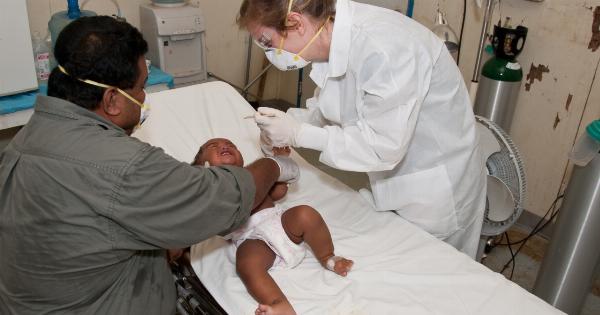Emergency aid centers are an integral part of the healthcare system, providing crucial services to individuals in need of immediate medical assistance.
These centers are equipped to handle a wide range of medical emergencies and play a vital role in saving lives. In this article, we will discuss some of the important services offered by emergency aid centers.
Emergency Medical Care
One of the primary services provided by emergency aid centers is emergency medical care. These centers have trained medical professionals who are available round the clock to respond to various emergency situations.
They are equipped to handle injuries, accidents, heart attacks, strokes, and other life-threatening conditions. The medical staff at these centers are efficient in stabilizing patients and providing initial medical treatment before transferring them to a hospital if further care is required.
Trauma Care
Emergency aid centers are well-equipped to handle trauma cases. They have specialized trauma rooms that are equipped with advanced equipment and tools required to deal with severe injuries.
Trauma care in these centers involves immediate assessment and necessary interventions to prevent further complications and save lives. The medical team at these centers undergoes specialized training to handle trauma cases efficiently.
Diagnostic Services
Emergency aid centers provide various diagnostic services to aid in the diagnosis and management of medical emergencies.
These centers have advanced diagnostic equipment such as X-ray machines, ultrasound machines, and laboratory facilities that enable them to quickly assess the condition of patients. Rapid and accurate diagnosis plays a critical role in determining the course of treatments and interventions required in emergency situations.
Minor Surgical Procedures
In addition to providing emergency medical care, many aid centers also offer minor surgical procedures. These procedures typically involve simple interventions such as suturing wounds, draining abscesses, and removing foreign bodies.
The availability of such services in emergency aid centers ensures that patients receive immediate attention and necessary procedures without being referred to a hospital, saving time and potentially reducing complications.
Pediatric Emergency Care
Pediatric emergency care is a specialized service provided by some emergency aid centers. These centers have dedicated pediatric departments or specialized pediatric medical staff who are trained to handle emergencies involving children and infants.
They understand the unique medical needs of children and provide appropriate care to ensure their well-being.
Pharmacy Services
Many emergency aid centers have in-house pharmacies that provide necessary medications to patients. This ensures that prescribed medications can be obtained immediately before leaving the center.
Having a pharmacy on-site is particularly convenient for patients who require immediate medication to manage their conditions, saving them the hassle of visiting a separate pharmacy.
Psychiatric Emergency Care
Psychiatric emergencies require specialized care, and some emergency aid centers cater specifically to these needs.
These centers have trained psychiatrists and mental health professionals who offer immediate support and interventions to individuals experiencing psychiatric crises. They provide crisis intervention, assessment, and referral services to ensure the safety and well-being of the patients.
Emergency Dentistry
Emergency aid centers also offer emergency dentistry services for individuals requiring immediate dental care. These centers have dental professionals who can address dental emergencies such as severe toothaches, broken teeth, and oral injuries.
Having emergency dentistry services ensures that individuals with dental emergencies do not have to wait for regular dental appointments and can receive immediate care.
Emergency Obstetric and Gynecological Care
Emergency aid centers provide services for women experiencing obstetric and gynecological emergencies.
They have specialized staff who can assess and provide immediate care for complications related to pregnancy, childbirth, and gynecological conditions. These centers play a crucial role in ensuring the safety and well-being of pregnant women and addressing any urgent medical needs.
Transportation and Coordination
Emergency aid centers are well-equipped to handle the transportation of patients requiring further care. They have ambulances or dedicated transfer services that can safely transport patients to hospitals or specialized care facilities.
Additionally, these centers coordinate with other healthcare providers, such as hospitals and specialist clinics, to ensure a smooth transition of care for patients.
Conclusion
Emergency aid centers are vital healthcare institutions that provide crucial services to individuals in need of immediate medical attention.
Their ability to provide emergency medical care, trauma care, diagnostic services, minor surgical procedures, pediatric emergency care, pharmacy services, psychiatric emergency care, emergency dentistry, emergency obstetric and gynecological care, transportation, and coordination ensures that individuals in critical conditions receive timely and appropriate care. These centers are an essential component of the healthcare system and contribute significantly to saving lives and promoting patient well-being.




























